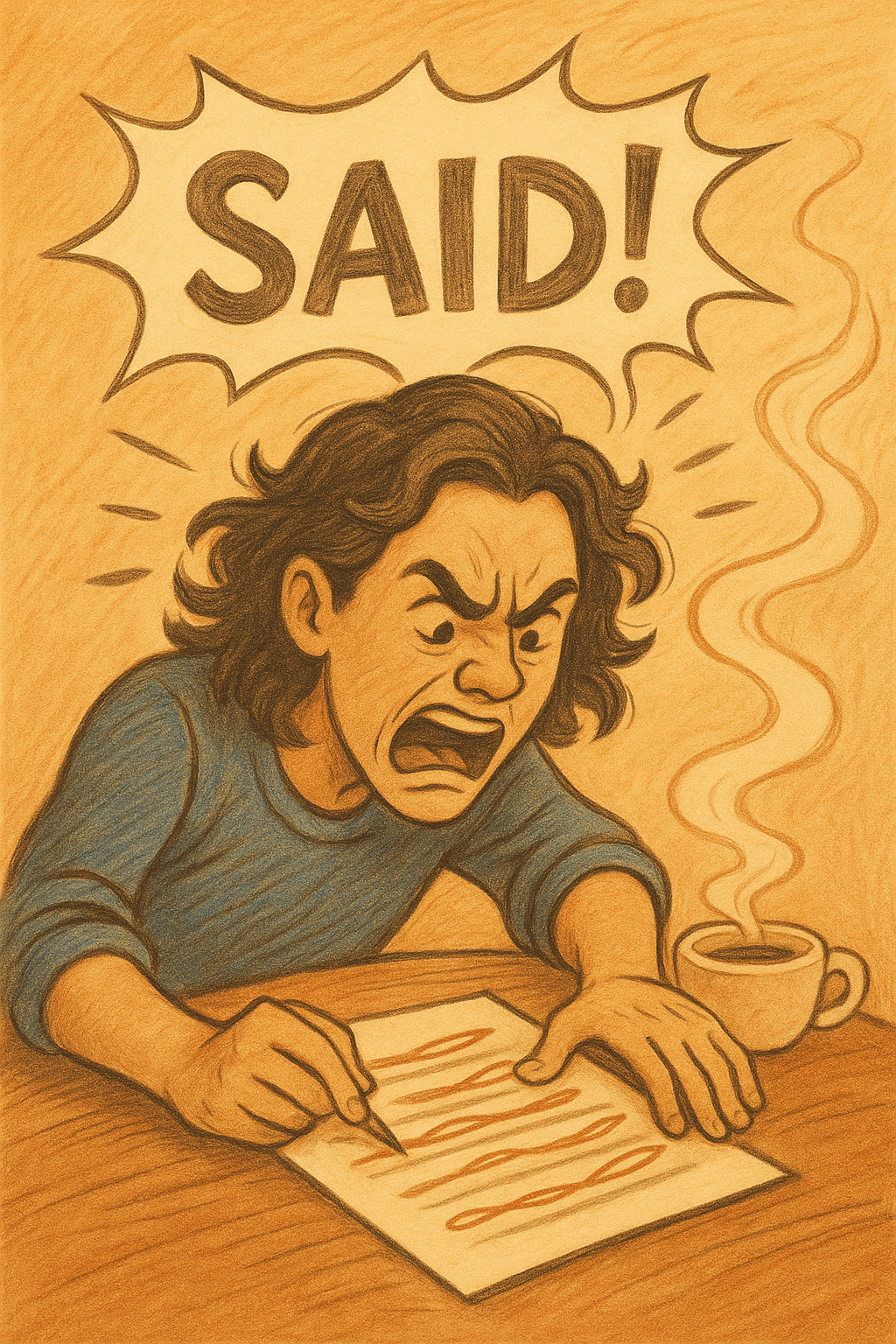Somewhere in a dimly lit corner of the writer-internet, you’ll find a nervous author clutching a thesaurus like it’s a life raft. Their eyes are wild. Their pages drip with dialogue tags that could double as emotional flashcards.
“I love you,” he professed.
“Then why did you eat my leftovers?” she accused.
“Because I – ” he stammered,
“Liar!” she shrieked,
“You always do this!” she lamented,
“Okay, yes, but listen – ” he pleaded…
By the third page we’re no longer reading fiction; we’re being bludgeoned by verbs.
Welcome, dear reader, to the world of Said-Bookism – the long-running literary tradition of being slightly afraid of the word said.
But why would anyone fear “said”?
Because someone, somewhere (likely in a well-meaning creative writing workshop), once whispered:
“Don’t repeat words. It’s lazy.”
And writers, bless us, took that to heart.
So instead of:
“I’m home,” she said.
We now get:
“I’m home,” she intoned,
“Finally,” he murmured,
“Dinner’s cold,” their cat grumbled.
(Note: If your cat is speaking in full sentences, verbs are not your biggest problem.)
Here’s the secret: “Said” is invisible.
Readers don’t see it. It’s a punctuation mark wearing a trench coat.
Said doesn’t announce itself.
It doesn’t perform.
It taps the mic once, nods politely, and lets the dialogue speak for itself.
Because good dialogue already shows emotion.
If you need to use “he howled” to prove someone is angry… my friend… the issue is not your verbs.
So what should you do instead?
Use said. Yes, over and over. Yes, even on the same page.
Your readers will live. In fact, they’ll thank you.
And when emotion really does matter?
You don’t need a fancy verb.
You need action.
“Fine.” She slammed the fridge door so hard it rattled the magnets.
No tag needed.
No melodrama required.
Instant emotional clarity.
The Litmus Test
- Does the tag draw attention to itself?
- Does it add information beyond tone the dialogue already gives?
If it’s just showing off, cut it.
If it adds meaning, keep it.
This is the difference between:
“Leave,” he growled. (Redundant. The dialogue already growled.)
and
“Leave.” He whispered it into the quiet. (Now that hits.)
The Moral of the Story
Your dialogue doesn’t need to audition for an opera.
Let said do its sleek, invisible job.
Save the dramatic verbs for when you truly mean them.
Because when your characters actually shriek –
Reader, we want to feel it.
Go forth. Write boldly.
And let “said” be said.

